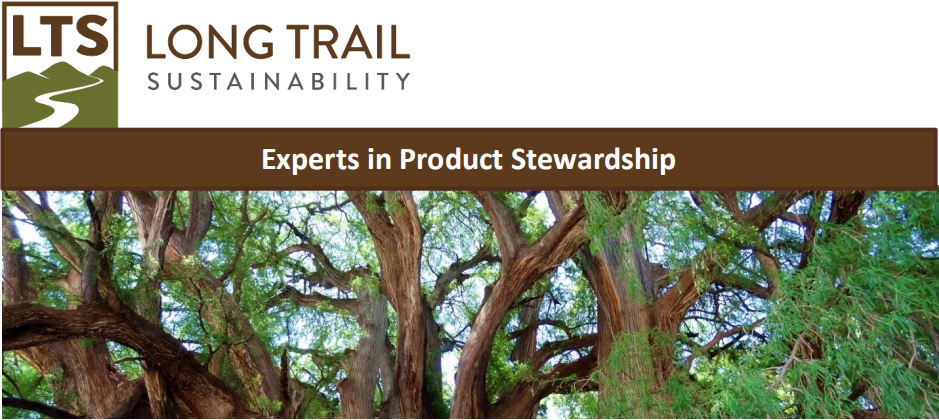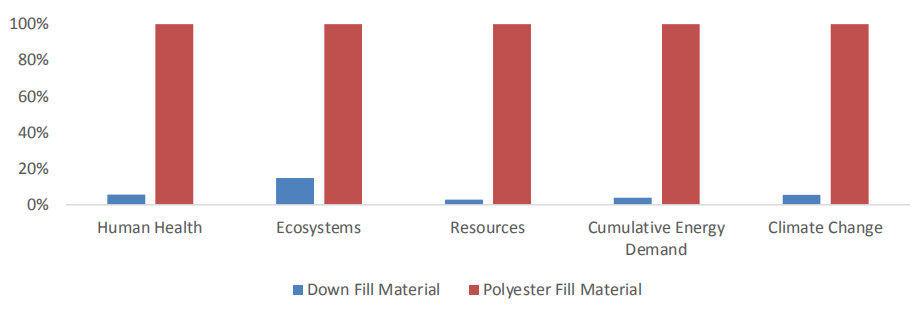Voice of IDFB


Life Cycle Assessment Shows Down and Feather Products are More Sustainable than Alternatives International Down and Feather Bureau announces recently published Life Cycle Assessment for down compared to polyester fill.
October 22, 2019 (Höchst, Austria) – Natural down in jackets, bedspreads and sleeping bags has 18 times less of an impact on climate change than polyester fill, according to a Life Cycle Assessment (LCA) that studied the environmental impact of down versus polyester fill material. The LCA, commissioned by the International Down and Feather Bureau (IDFB), analyzed the impact of both materials in 5 environmental areas: human health, ecosystems, resources, cumulative energy demand and climate change. Results concluded that on a per ton basis, down has 85% - 97% lower impacts than polyester in all the impact categories analyzed.
IDFB commissioned Long Trail Sustainability, an independent third-party firm specializing in LCAs and sustainability reports, to scientifically substantiate the claim that down has a lower environmental footprint compared to its alternative. “Because down is a natural resource, we knew that it had a positive environmental impact which led us to commission this study in order to verify the sustainability of down vs. synthetic alternatives, such as polyester,” says president of IDFB Stephen Palmer. “The consumer movement towards natural and sustainable products is precisely in line with the value proposition of down products.”
Down is used to fill and insulate everyday products including apparel, outdoor gear and home products such as bedding and pillows. In addition to being a natural byproduct and renewable, down and feather provides superior warmth without the weight, and is ethically sourced and biodegradable.
The study had a full comparative panel that assessed down from the raising of ducks/geese through to the processing of the down including energy, water and detergent. Boundaries for the polyester material included processing the polyester material including polymer polyethylene terephthalate (PET), heat and electricity. The report adheres to ISO 14040 and 14044 guidelines which outline the principles and framework for LCAs.
For more information about the LCA, its findings and IDFB please visit https://idfb.net/, or contact IDFB at idfb@idfb.net.
